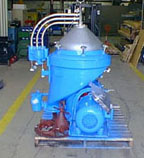Author: NES Group
It is no longer enough for recruitment agencies to have a fully networked database of skilled candidates in order to satisfy company requirements in the UK, so it is encouraging to see a considerable proportion of organisations expressing an interest and a willingness to employ skilled International Candidates, with the help of agencies who are registered with the OISC (Office of Immigration Services Commission) allowing them to provide advice on immigration.
What are the routes into the UK?
There are a number of options available to EU and non-EU nationals seeking work in the UK:
EU and EEA nationals
Nationals of the European Union and European Economic Area are free to enter and work within the UK for an indefinite period of time. They must have an EU passport and / or National Identity Card and show they have funds to support themselves and any family members they bring along.
Nationals of the Accession 8 countries (Poland, Czech Republic, Hungary, Latvia, Lithuania, Estonia, Slovakia and Slovenia) that joined the EU in 2004 can enter and begin work as above, but they must also register on the Workers Registration Scheme (WRS) within 30 days of their start date. If they fail to do so they will be working illegally from that point on unless there are exceptional circumstances for which they are unable to do so. The fee for the WRS is payable by the applicant.
Nationals of the two accession countries of 2007, Romania and Bulgaria, have a different set of rules to consider. Candidates from these two nations who are considered self employed (working as Ltd Company contractors) do not need entry clearance documentation. However, if they work as contractors under an umbrella company or on a permanent basis they will require working authorisation.
Non-EU nationals
There are two main ways a non-EU citizen can enter and work within the UK. They are as follows:
1. Highly Skilled Migrant Program
The HSMP was set up in 2004 to provide a working visa for highly skilled and specialised individuals. Candidates are assessed on their age, qualifications and previous earnings and points are awarded for these. Amendments were recently made to the HSMP system, including increasing the point threshold from 65 to 75 and awarding further points for different ages and qualifications. Any score under this means ineligibility. The processing fee for HSMP is £400 and is payable by the jobseeker.
Applicants must be able to provide tangible evidence for the points they are claiming, so as well as a neatly filled out application form and fee, original documents must be supplied (e.g. payslips and bank statements to prove earnings, qualification certificates to prove educational achievements etc). Work Permits (UK), the organisation responsible for processing HSMP visas, insists that all original documentation must be presented: points are deducted if copies are sent.
Processing the HSMP takes Work Permits (UK) between two and six weeks. When an applicant is issued with their visa they will need to apply for either Further Leave to Remain (FLR) if applying for HSMP ‘in country’ or Entry Clearance (EC) if applying from abroad. See the FLR and EC section below for more details.
The applicant can begin work once FLR or EC has been granted, which permits two years of eligibility to work in the UK. Work is not restricted so the individual can move contracts, companies or locations and accept increases in pay without the need to leave the country and re-apply. Once they near the end of the two years and assuming they are still happy with their circumstances, they can apply for a three-year extension. A simple form, a new processing fee of £400 and another FLR completes this process.
2. Work permit
For those who are ineligible for HSMP or who are reluctant to pay the costs to apply, the Work Permit is an alternative option. This permit is job-specific and therefore requires an offer of work from a UK based company who is willing to sign a declaration stating its commitment to employing that individual. It is not possible for a Work Permit to be issued for contract work.
The employer company or their OISC registered advisers will need to provide evidence that they have made satisfactory efforts to hire a UK or EU citizen in the form of advertising. This advertising must have been in place for a set time period and cannot have been created for the purposes of hiring and individual. It must have also been available to view in a suitable media format with wide ranging distribution.
The processing fee for a Work Permit is £190 and the timescale on an application is between one and three weeks. The candidate will now need either FLR or EC depending on whether they applied in country or from abroad. Once this has all been granted the job applicant can begin work.
It must be noted that the permit restricts the work to the project, location, company, earnings and length of time outlined in the original WP application. A new application is necessary before any changes are made to these circumstances.
Non-EU students and the International Graduates Scheme (replacing the SEGS)
For students of non-EU nations who are studying specified degrees in the UK there is a working visa option. If the candidate has completed their degree within the last 12 months, they are eligible to apply for the International Graduate Scheme (IGS). The processing fee for this visa is £395 and is payable by the job applicant. FLR is included in these applications so a separate application for this is not necessary. It gives the candidate 12 months work in the UK, after which they can switch to one of the other two visas outlined above.
(NB: For those overseas students who have studied and completed their courses in Scotland, there is the option of moving onto the Fresh Talent Scheme, a 24-month working visa for the whole of the UK. The only restriction here is that when applying for a Work Permit, the sponsoring company must be based in Scotland)
Indefinite Leave to Remain
Once an individual has lived and worked in the UK for five years or more they are eligible for Indefinite Leave to Remain. This allows them to stay and work in the UK for as long as they wish.
This article is free for republishing
Source: http://www.articlealley.com












